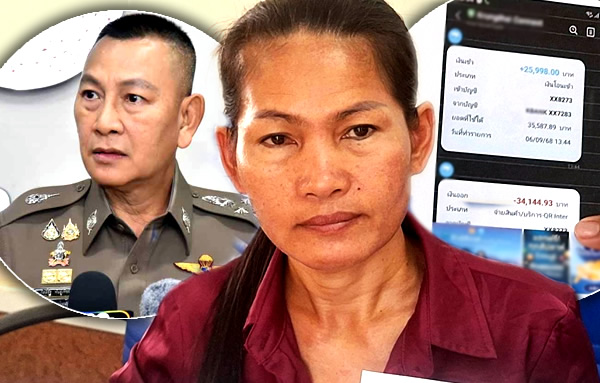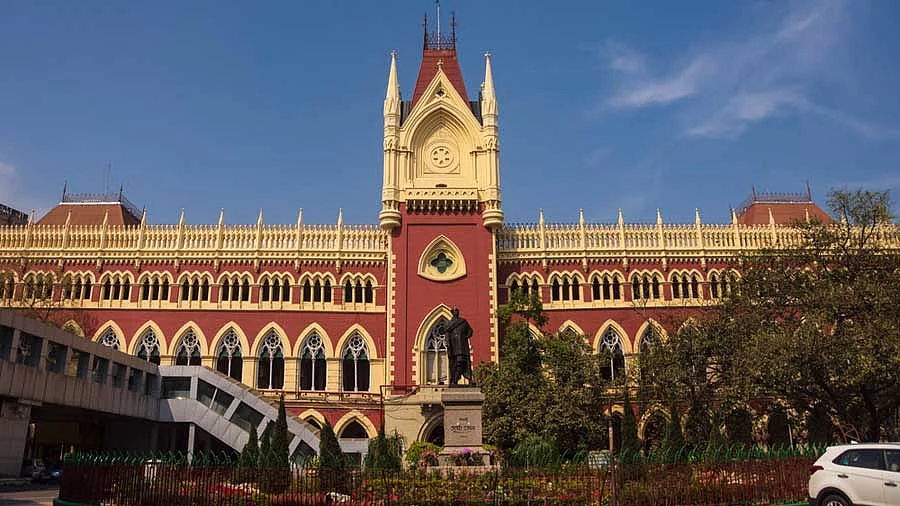Anarchy and online fraud nightmare spreading within Thailand’s digital banking system for ordinary people
By James Morris And Son Nguyen
Copyright thaiexaminer

Thailand’s digital banking system is in chaos as online scammers use AI and fake identities to steal funds, leaving victims frozen, threatened with prosecution, and forced to repay money they never received. At the same time, the police struggle to respond effectively.
Thailand’s digital banking is in crisis as online fraud explodes. Police promise to unfreeze innocent accounts, yet victims are trapped. In Udon Thani, a 48-year-old woman had her account wiped, frozen, and was threatened with prosecution over ฿25,998 she never kept. Scammers using AI and fake identities stay ahead, while victims face suspicion instead of help. The digital revolution is turning into a nightmare, and fraudsters are winning.
There is growing alarm in Thailand that online scammers are now outpacing the Royal Thai Police. Despite a recently enacted Royal Decree aimed at freezing and tracking fraudulent transactions, fraud victims continue to be victimised—this time by the very systems meant to protect them.
In one increasingly common scenario, a woman was scammed, lost all her money, and is now being treated as a criminal suspect. Her case is raising serious questions about the competence of the anti-scam regime, the coordination between police forces, and the broader implications of a crackdown that may be turning victims into villains.
Ms. Kamonporn, a 48-year-old resident of Ban Dung in Udon Thani, fell into a trap so cunning that even police officers find it hard to explain. Several months ago, she bought a refrigerator from a large department store in Udon Thani for ฿14,490. After experiencing problems with the appliance, she lodged a complaint.
48-year-old woman targeted by scammers using personal details and advanced tactics to steal her funds
Therefore, she was not surprised when she received a call from someone claiming to be from the store’s accounting department. The caller offered a full refund and asked her to continue the conversation via the LINE application. Since the caller knew her name, purchase date, and the exact price of the fridge, she believed the offer was genuine.
Once the conversation moved to LINE, the scammer sent her a QR code and a Krungthai Connect icon, along with a “View Profile” button. She recalls clicking the profile button, which caused her phone to behave strangely, almost as if it was activating the camera to scan something. Within seconds, ฿25,998 appeared in her account—much more than her original purchase price.
Being honest, she messaged the representative to report the overpayment. She was told that it was a system glitch and asked to return the excess amount. However, just moments later, her bank account was completely emptied. A total of ฿34,144.92, including all of her own savings, disappeared.
She immediately contacted the bank’s emergency hotline. A staff member informed her that her account had already been frozen. She was advised to file a police report, which she promptly did at Ban Dung Police Station.
Reporting the fraud led to her account being flagged as high-risk and linked to a suspected mule operation
Additionally, she contacted the Cyber Crime hotline at 1441. At that stage, she believed she was doing everything correctly. Yet, within days, the situation took an even darker turn. Mae Ping Police Station in Chiang Mai contacted her and claimed that her bank account had been flagged as a mule account used for laundering funds.
According to their investigation, her account had received a transfer from a man named Mr. Wanchai Chomphuchai, whose account was already under scrutiny.
From there, the money was quickly forwarded to Malaysia. As a result, her account was marked as “dark grey,” indicating a high-risk mule account, and she was told to return the ฿25,998 or face criminal charges.
Despite explaining that she herself had been the victim of a scam, officers showed no interest in her side of the story. They told her bluntly that failure to comply would lead to two summonses, followed by an arrest warrant.
In desperation, she and officers from Ban Dung Police Station tried to speak directly to Police Lieutenant Phitakkun Ketmanee, the officer who froze her account. Yet even this effort was fruitless. According to the officer, she was no longer considered a victim but now classified as a suspect.
Overwhelmed victim faces legal threats and emotional pressure while police insist on repayment of funds
She is now overwhelmed, frightened, and sleepless. “I don’t know how to find a way out,” she said, fighting tears. “Why did I get scammed and then end up being treated like a criminal?” She added that the scammer had even asked her to use her children’s bank accounts to “send the money back,” which she wisely refused to do. The pressure has left her emotionally shattered and financially ruined.
Although national police chief General Kittirat Phanphet on Tuesday pledged that frozen accounts belonging to innocent people would be unfrozen within half a day, Ms. Kamonporn’s case suggests otherwise.
According to General Kittirat, people wrongly flagged as suspects must submit full details—ID number, full name, and bank account information—to police hotlines at 191 or 1559. If found innocent, they would supposedly regain access to their accounts in just hours. However, in practice, the process appears arbitrary, confusing, and deeply flawed.
Meanwhile, police officers themselves are starting to express concern. Many have admitted that the new policies are adding overwhelming workloads and creating enormous legal responsibility for frontline officers.
Police officers now face heavy workloads and legal risks as anti-fraud policies increase administrative pressure
These officials are now required to make split-second decisions about whether someone’s account is tied to criminal activity. This is not only an administrative burden but also a legal and moral hazard.
Moreover, since scammers often impersonate police officers during their cons, the increased entanglement of the police in financial matters may paradoxically give scammers more legitimacy in the eyes of their targets.
The problem is not limited to individual victims. A growing number of small businesses have also been affected. Many shop owners have stopped accepting QR code payments for fear their accounts will be frozen if they unknowingly receive money from a scam.
According to the Thailand Consumer Council, the real solution may lie with the banks. If financial institutions could block transactions from mule accounts before they reach innocent parties, the damage could be minimised.
However, such systems remain either undeveloped or underutilised. Digital banking, especially on Android smartphones, has also made many users vulnerable. Many Thai citizens have adopted mobile financial tools without fully understanding the risks.
Even simple mistakes like clicking unknown icons can trigger severe financial loss for unsuspecting victims
As in Ms. Kamonporn’s case, something as simple as clicking an unfamiliar icon can result in catastrophic consequences. It’s clear that public education has not kept pace with the sophistication of these scams.
Tragically, the stress is not just financial. It is also taking a toll on mental health. In one unrelated but equally disturbing case, a 37-year-old man was found dead in his car after reportedly complaining about a frozen account.
Although police later clarified that his account was not actually frozen and that he had a history of drug use, the timing of the death and his distress raised questions about the psychological toll of the current crackdown.
Police General Kittirat insists that the crackdown must continue. He argues that innocent people will be protected and that only suspicious amounts, not entire accounts, are being frozen. Yet, that claim appears to conflict with the growing number of cases like Ms. Kamonporn’s, where entire accounts have been locked, livelihoods destroyed and victims criminalised.
Victims face disruption and frozen funds despite assurances innocent account holders will regain access
For Ms. Kamonporn, the immediate issue is survival. Her account is frozen. She is under threat of arrest. She has no access to her own money. Furthermore, she has no idea how to convince the authorities that she is not a criminal. As she put it, “They think I’m a scammer. But I’m the one who got scammed.”
Her case is a warning. While Thai police and security agencies may be freezing accounts to catch online criminals, they may be freezing justice at the same time.
Ministry officials hit back at rising public disquiet over new online fraud bank powers causing chaos
Financial system chaos for traders and honest people as top security agencies pursue new banking powers
Banking crisis as security overreach limits large numbers of personal and business bank accounts
The crackdown, however well-intentioned, has created a system where victims are punished and scammers disappear. After that, trust in the police continues to erode. Unless the system is reformed quickly and carefully, more innocent people will face disruption—not at the hands of criminals, but at the hands of the state. Or, significantly, as in Ms Kamonporn’s story, is it the state at all or another scam? This story, in brief, highlights the fear and confusion that have now been allowed to develop.
Join the Thai News forum, follow Thai Examiner on Facebook here
Receive all our stories as they come out on Telegram here
Follow Thai Examiner here
Further reading



